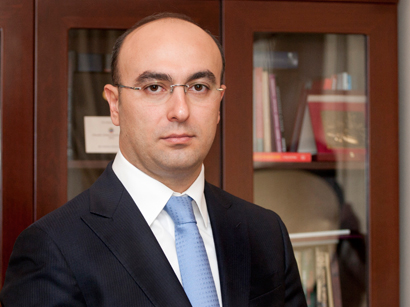Baku, Azerbaijan, Nov. 7
By Elchin Mehdiyev - Trend: After the OSCE Minsk Group co-chairmen met, the political will was once again stressed, Chief of the Political Analysis and Information Provision Department of Azerbaijani Presidential Administration, Elnur Aslanov told media on Nov. 7.
"The co-chairmen said that while demonstrating a constructive position on the Nagorno-Karabakh conflict settlement, Azerbaijani side is interested in the continuation of negotiations and the establishment of peace and security in the region," Aslanov said.
He was commenting on the statement by Armenian Deputy Foreign Minister Shavarsh Kocharyan, who said that Azerbaijan is demonstrating a non-constructive position in the Nagorno-Karabakh conflict settlement and harming the peace process.
According to Aslanov, unfortunately, Armenia has repeatedly expressed its non-constructive position at the level of state officials, and in general, has already started playing the role of "malignant growth" through its policy in the region.
Despite that Armenia is in a very difficult position from economic and political points of view, it manages to surprise the East and the West, as well as other countries by its inconsistent policy, Aslanov said.
"Of course, we are waiting for Armenia's more constructive actions, constructive position, a more rational approach," the high-ranking official added.
Aslanov stressed that while realizing its unfortunate position, Armenia will make an effort to take a more constructive position in the region.
The conflict between the two South Caucasus countries began in 1988 when Armenia made territorial claims against Azerbaijan.
Armenian armed forces have occupied 20 per cent of Azerbaijan since 1992, including the Nagorno-Karabakh region and seven surrounding districts.
Azerbaijan and Armenia signed a ceasefire agreement in 1994. The co-chairs of the OSCE Minsk Group, Russia, France and the U.S. are currently holding peace negotiations.
Armenia has not yet implemented the U.N. Security Council's four resolutions on the liberation of the Nagorno-Karabakh and the surrounding regions.






